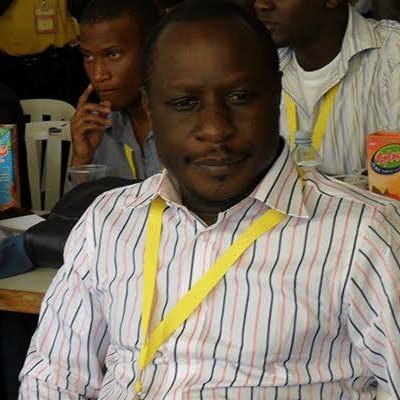By K. David Mafabi
Last Wednesday, I attended the national launch of the African Union’s (AU) “Amnesty Month on the voluntary surrender of illicit arms and light weapons”, at the Silver Springs Hotel in Bugolobi. It was presided over by the Minister of Internal Affairs, Gen. Kahinda Otafiire. The overall AU Campaign, initially slated to run up to 2020, shall now run up to 2030.
But, I was not in Bugolobi because I am particularly well informed about the Campaign (I am not) – neither was I initially invited. I was there simply because I accompanied my son Joel Cyprian Mafabi who was one of the three winners (out of 42 participants) in an online youth competition initiated by the National Focal Point on Small Arms and Light Weapons and the Ministry of Internal Affairs – involving designing a slogan encapsulating the Silencing the Guns’ AU Campaign. Joel is a University student, Vice Chairperson of Mbale City Youth Council, as well as Chairperson of the Mbale City Northern Division Youth Council.
The media adequately covered the speeches of Gen. Otafiire, the Representative of the African Union, the Representative of the United Nations, the Executive Secretary of the Regional Center on Small Arms, and of Florence Kirabira of the National Focal Point. There is therefore no need to repeat what was said, here. I can only congratulate the National Focal Point and the Ministry of Internal Affairs on a job well done, and the Government of Uganda for spearheading the implementation of AU Programs. I also salute the three young people who excelled in the online competition. I wish the National Campaign well in their targeted activity in Northern Uganda, Karamoja, Rwenzori, and Kampala Metropolitan Area.
As is always the case though, these occasions provide important opportunities for deeper reflection on the wider geopolitical setting, and the strategic imperatives and need for the accelerated and deepened integration of Mother Africa. The sharp logic of the Nyerere/Museveni line of working for political Federation at the regional level, and pushing for an African Economic Community at the Continental level – always stands out in bold relief.
The AU “Master Roadmap of Practical Steps to Silence the Guns in Africa by Year 2020” – now 2030, has this analysis (forgive us for quoting at length): “The continuing insecurity, instability, disruption of political harmony, erosion of social cohesion, destruction of the economic fabric and public despondency in various parts of Africa call on the Peace and Security Council (PSC) to play a locomotive role in spearheading strategic interventions to put this sad situation to an end. Most crises and violent conflicts in Africa are being driven by poverty, economic hardships, violation or manipulation of constitutions, violation of human rights, exclusion, inequalities, marginalization and mismanagement of Africa’s rich ethnic diversity, as well as relapses into the cycle of violence in some post-conflict settings and external interference in African affairs …”
“Undoubtedly, these challenges can be overcome, as long as the correct remedies are identified and are applied. It is in this context that the PSC convened a Retreat that was dedicated to the theme: Practical Steps to Silence the Guns in Africa by Year 2020, from 7 to 9 November 2016, in Lusaka, Zambia …”
“ … This was all the more urgent given the central thrust of Agenda 2063 and the overall AU Vision of building a peaceful, stable, secure, integrated and prosperous Africa, and the essence of Agenda 2030 on sustainable development goals … Notably, the 4th aspiration of Agenda 2063, which is the African Union’s strategic framework for socio-economic transformation of the continent over the next five decades, highlights the need for dialogue-centered conflict prevention, as well as the management and resolution of existing conflicts, with a view to silencing the guns in our Continent by the Year 2020. Agenda 2063 provides that in order to achieve sustainable conflict prevention and resolution, a culture of peace and tolerance must be cultivated and nurtured in our children and youth, among others, through peace education. Furthermore, in its First Ten Years Implementation Plan, Agenda 2063 stresses the imperative of ending all wars, civil conflicts, gender-based violence and violent conflicts and prevent genocide, as part of Africa’s collective efforts to silence the guns in the continent by the year 2020.” As mentioned earlier, for “2020”, please read “2030”.
I obviously support the AU and all its programs and initiatives, to the hilt. Sometimes though, I do not know whether to be excited or discouraged by the sheer number and diversity of AU Policies, Programs, Strategies and Activities as for example Science, Technology and Innovation Strategy for Africa; Policy Guidelines for Digitizing Teaching and learning in Africa; Land Governance Strategy; African Plan of Action for Youth Empowerment; Migration Policy; Establishment of the Continental; Etc; Etc. An objective and very serious challenge poses itself – that of the conceptual harmonization of the plethora of Policies and Programs, and their coordinated implementation.
The other challenge is the very real possibility of the emergence of a top-heavy bureaucracy and officialdom at the center in Addis – which can very well take a life of its own, impervious to the objective and fundamental interests of the African people. The leaders need to insist on a regular and thorough audit of the Programs.
Next week, we shall discuss the Nyerere/Museveni line which we mentioned above in some detail – and why it is extremely important for Mother Africa.
K. David Mafabi
Senior Presidential Advisor/Political Affairs (Special Duties)
State House.




